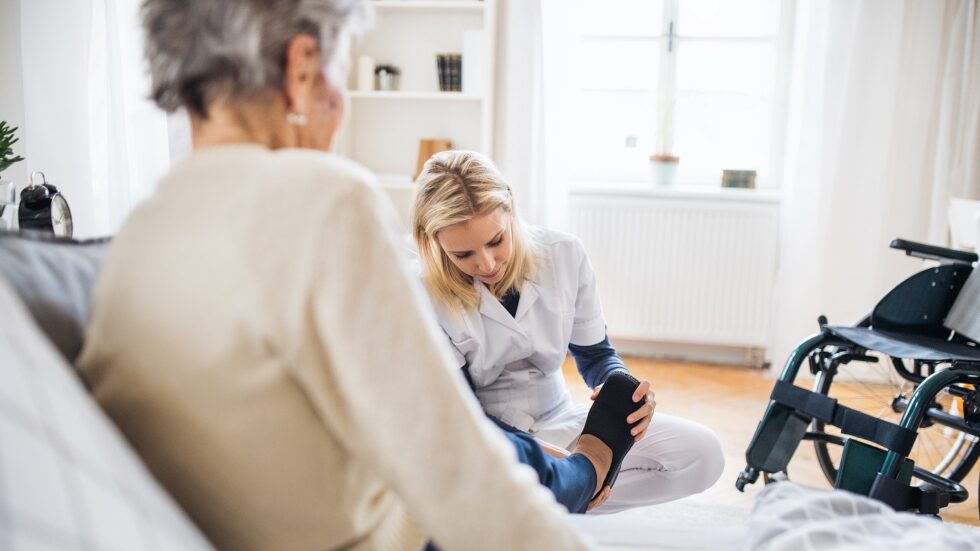End of life care doesn’t have to take place in a hospital or hospice. Just like planning to pass away at home, many retirement homes can also support you or your loved one in your final days.
Death and thinking of death is not something any of us want to do. Unfortunately, like taxes, death is the only promised thing in life! Whether you’re fit and healthy and this is a consideration for the future, or you’re looking more closely ahead because of a progressive illness or disease, we look below at how palliative care can be provided in a residence and how the staff and team there will best support you.
- Nursing and PSW assistance: We’ve spoken in past articles and in our book about the different levels of care within retirement homes. It’s important to understand before you commit to a residence how high their care support can go. Some homes are very independently geared and may not be able to take on the needs of an actively palliative resident, while others offer very heavy care and they are well prepared for all end of life eventualities. It’s important to ask these questions when you tour your preferred options.
For those that can, expect a lot of communication between the director of care and yourself and your family, with your care plan being updated, acknowledging your wishes and how they will increase care services as needed. This is usually always in conjunction with…
- Home and Community Care: The government’s arm of home care who provides free personal support service to those who qualify, HCCSS also has community palliative care teams that comprise palliative care doctors, nurses, social workers, nutritionists, chaplains and others, whose role it is to liaise with you, and the director of care and nursing team at your retirement home, to effectively deliver the appropriate care to you as needed. The nursing team at a home will carry out any doctor’s order, and will be able to support medication requirements and other directions to keep you as comfortable as possible. Palliative care is OHIP funded, so it is free to you at home, in a hospice or a hospital. It is also free to you in a retirement home – the services that HCCSS will be providing. If you’re using the home’s staff for any need, then there will be a charge for their help, just as there would be for their support and care at other times during your stay.
- MAiD: Medical Assistance in Dying is something that all Canadians now have access to if they’re eligible. A director of care in a retirement home will liaise with your MAiD team and again, be there to support whatever you choose. We know more and more of MAiD happening in residences and are very encouraged by how compassionate, supportive and understanding all staff are towards the resident and their family.
- At Home Hospice Teams: Often, when choosing palliative and end of life care at home, many consider utilising private nursing care, as well as, or sometimes instead of HCCSS services. This choice is yours too, even in a residence where there is additional staffing. Private hospice teams are made up of RNs and RPNs whose role it is to be there with you up to 24/7 if you want; to administer medications including via a PICC line, to keep you comfortable and to be noting any changes. Sometimes residents or their family prefer to have no involvement from the on site team, but instead have private care in the last few days, as it can be constant and consistent and from someone specifically trained in palliative care.
- Death Doula: Much like a doula for the birthing process, a death doula is there to support the individual and family with the dying process. They offer very holistic support and aim to help families cope with death while recognizing it’s a natural and important part of life. Death doula’s aren’t there to support medically, but more emotionally, physically and will carry out the wishes of the patient in a dignified way, often helping them as they grieve the loss of their own life. They can also educate and empower, and although this is an unregulated profession, the End of Life Doula Association of Canada is committed to establishing a community of practice for EOL doulas. Death doulas, like any part of an outside care team, are welcome in retirement homes but are paid for privately by you.
If you have questions about which residences can support you at end of life or which offer higher care, where and how, please don’t hesitate to contact us at 613-421-6073 or info@solvaseniorliving.ca
Helpful Links:
Retirement Home Regulatory Authority: www.rhra.ca
Home and Community Care Support Services (HCCSS): Call 310-2222 www.healthcareathome.ca or https://health.gov.on.ca/en/public/programs/palliative/palliative_questionsandanswers.aspx
At Home Hospice: Read more from Bayshore at https://www.bayshore.ca/services/home-care/medical-services/palliative-care/ or at www.hospicecareottawa.ca
Death Doulas: www.endoflifedoulaassociation.org

